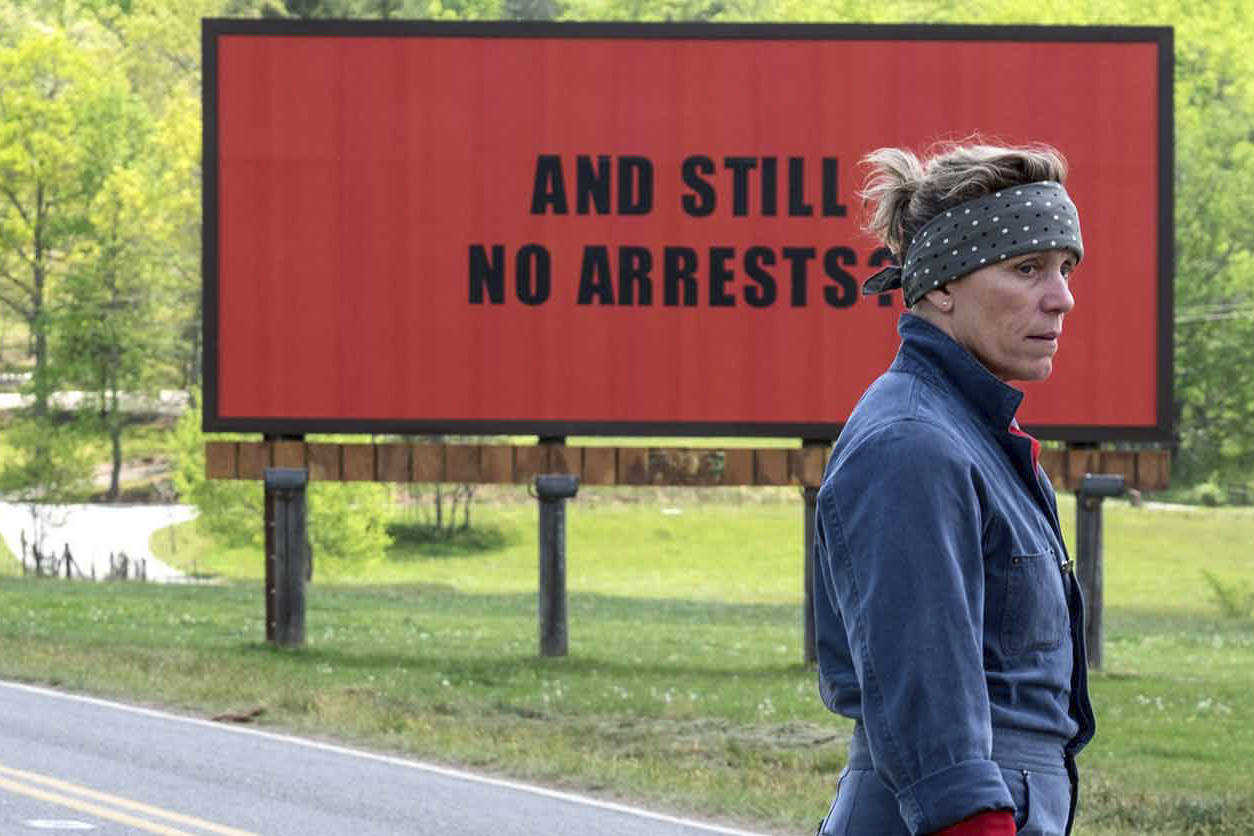Great movie dialogue is at its funniest when you can quote a line that brings down the house but won’t mean a thing out of context. For instance, in Three Billboards Outside Ebbing, Missouri, Peter Dinklage utters these words in the middle of a dinner conversation: “Penelope said ‘begets’?” Not funny out of context, but in the movie it is preceded by certain other lines, and delivered with a certain throwaway intonation, and seen from a certain camera angle, and followed by certain reactions. It is glorious. This is because writer-director Martin McDonagh is a craftsman who places each word with wicked precision, a talent he has previously displayed in his career as a playwright, and in two films: the great In Bruges, and the rather sour Seven Psychopaths. McDonagh is so besotted with language that a large portion of the dialogue actually concerns itself with how people use words, or misuse them.
Three Billboards finds the Irish filmmaker conjuring up a fictional American town in the Midwest. Here in Ebbing, a tough grieving mother named Mildred Hayes (Frances McDormand) plasters messages across local billboards in order to taunt Ebbing police about why they haven’t solved the rape and murder of her daughter some months earlier. Her gesture sets in motion a series of wild consequences. However rough these can be—and some of them are very violent—McDonagh never entirely loses his grip on black comedy, which comes not at the expense of the characters but from an acid-washed humor born of anger.
The movie’s hard core is rooted in McDormand’s no-nonsense performance, which allows us to root for Mildred while at the same time recognizing that she is more than a little eccentric. She is beautifully matched by Woody Harrelson, as the exasperated but grounded town sheriff; his character benefits from an extraordinary sequence involving the writing and reading of letters, which might not sound stirring but very much is. At the film’s heart is Sam Rockwell, as Ebbing’s loser deputy, a man with the intellectual capacity and professional discipline of Barney Fife but racist and sexist to boot. Through half the movie, we have no good reason to care for him, but buried inside McDonagh’s caustic comedy is a character study about someone who might just possibly take a turn for the better. Rockwell has been a hard-working actor for a while (witness his solo tour de force in Moon) without ever quite breaking through to the level of acclaim he deserves, but this role could change that. His physical performance alone—the way he distills a lifetime of resentment into his pot-bellied slouch—is pure gold.
The cast includes Dinklage as McDormand’s wistful suitor, John Hawkes as her quick-trigger ex-husband, and Lucas Hedges (from Manchester by the Sea) as her neglected son. Everybody’s in top form, operating in a mode that isn’t especially realistic—the dialogue here sounds very “written,” in a compelling way. McDormand practically etches her name on an Oscar with a monologue directed at a priest who disapproves of her billboard pronouncements; you can hear McDonagh’s stage work showing through the script’s more operatic moments. But McDonagh is more than just a deft writer of dialogue. This film is playing a delicate game, offering observations about human nature while it undercuts our expectations about how we watch movies.
For instance, one of the most electric scenes of the movie year occurs late in the action, when Rockwell’s hapless deputy drowns his sorrows in a bar. “The Night They Drove Old Dixie Down” plays on the jukebox as the deputy overhears a conversation in the booth next to him. We don’t completely understand what he does next until a couple of scenes later, and things don’t pan out exactly as we suspect. McDonagh has carefully prepared for this scene so that it goes off like a bomb, and yet the movie has a couple of twists up its sleeve. Watching this play out will disappoint anybody in search of tidy resolutions, but the film’s ending is exhilarating in its own way. For all of McDonagh’s cleverness, his power resides with his grasp of people, who sometimes don’t have to say anything. Opens Friday, Nov. 17 at various theaters, rated R






